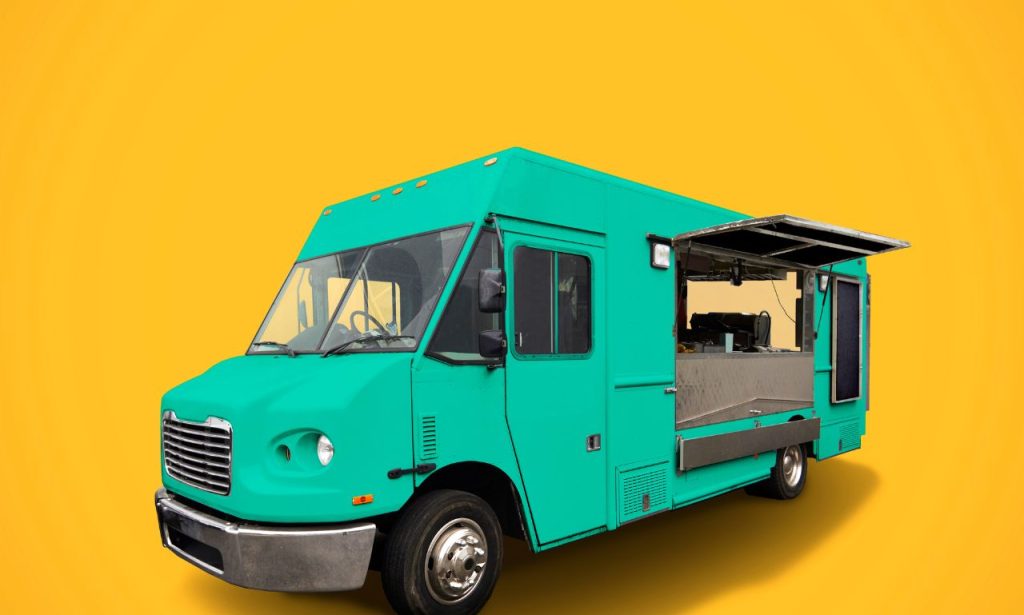Selling your food truck is more than just a business transaction; it’s the culmination of your hard work and dedication. Whether you’re seeking a new professional direction or looking to retire, understanding how to sell a food truck effectively will help you get the best return on your investment. This comprehensive guide covers everything you need to know to ensure a successful sale, from initial assessment to finalizing the deal.
Assess Your Reasons for Selling
Before jumping into the selling process, it’s essential to reflect on why you’re selling your food truck. Understand your motivations—because they will shape how you approach this sale.
- Burnout or Fresh Opportunity? Are you worn out from running the food truck business and craving a new start? Or, is there an exciting new venture calling your name?
- Financial Pressure? Perhaps debts or financial strains are motivating the sale, and you’re looking to liquidate assets.
- Market Considerations: Are the current market conditions favorable for a sale? A thriving food truck industry in your area means you’re more likely to get the price you deserve.
Evaluate the Financial Health of Your Business

The success of your sale depends largely on understanding your food truck’s financial health. Numbers are everything to prospective buyers.
Financial Snapshot Checklist
- Income Statements: Present a clear picture of your income versus expenses.
- Balance Sheets: What are your assets and liabilities? Your balance sheet shows the real value of the business.
- Cash Flow Statements: Showcasing consistent positive cash flow will boost your appeal to buyers.
Potential buyers want to know if they’re stepping into a healthy, cash-generating business. Prepare these documents meticulously.
Determine Your Food Truck’s Value
Putting a price on your food truck is more than crunching numbers; it’s an art that requires understanding multiple value points. Let’s break it down:
- Physical Condition: Buyers will look at the wear and tear on the truck. Is it spotless or in need of repair?
- Brand Reputation: Are you a local legend or a newcomer? The stronger your brand, the higher the perceived value.
- Market Demand: High demand for food trucks in your area can mean a higher selling price.
- Unique Selling Points: Got specialized equipment? A unique menu? Anything that differentiates you adds value.
Work with a Professional Appraiser
Consider working with a certified appraiser who’s experienced in valuing food trucks. They’ll evaluate factors such as market trends, comparable sales, and the specifics of your truck to give you a reliable valuation.
- Certified Expertise: Choose an appraiser who understands the intricacies of mobile food businesses.
- Detailed Reports: Make sure they provide a comprehensive report, not just a number. Buyers will trust a well-documented valuation.
Assess the Market Before Selling
You need to know if it’s the right time to sell your food truck. Market conditions can be your best friend or your worst enemy.
- Local Trends: Are food trucks thriving in your area? Is a particular cuisine in high demand?
- Economic Factors: What’s consumer spending like? How are food prices affecting the industry?
Prepare Your Food Truck for Sale
First impressions matter. The more appealing your food truck looks, the faster and more profitable your sale will be.
Enhance Curb Appeal
- Deep Clean: Inside and out, your truck should sparkle. A clean truck shows that you care.
- Fresh Paint: Faded or peeling paint? Don’t hesitate—a fresh coat can transform the look.
- Updated Signage: Your signage should be fresh, current, and attention-grabbing.
Upgrade Equipment and Technology
Modern equipment speaks volumes about the health of your business. If potential buyers see state-of-the-art tools, they’ll believe in your food truck.
- Replace Old Equipment: Swap out anything worn out with new or refurbished items.
- Update Technology: Ensure your POS system and gadgets are up-to-date.
Organize Documents
Buyers want transparency. Have everything at their fingertips.
- Financial Records: Up-to-date and accurate records will make due diligence easy.
- Operational Documents: Document inventory procedures, food safety protocols, employee guidelines, and supplier contracts.
Negotiate and Close the Sale

Determine Your Food Truck’s Value
Putting a price on your food truck is more than crunching numbers; it’s an art that requires understanding multiple value points. Let’s break it down:
- Physical Condition: Buyers will look at the wear and tear on the truck. Is it spotless or in need of repair?
- Brand Reputation: Are you a local legend or a newcomer? The stronger your brand, the higher the perceived value.
- Market Demand: High demand for food trucks in your area can mean a higher selling price.
- Unique Selling Points: Got specialized equipment? A unique menu? Anything that differentiates you adds value.
Work with a Professional Appraiser
Consider working with a certified appraiser who’s experienced in valuing food trucks. They’ll evaluate factors such as market trends, comparable sales, and the specifics of your truck to give you a reliable valuation.
- Certified Expertise: Choose an appraiser who understands the intricacies of mobile food businesses.
- Detailed Reports: Make sure they provide a comprehensive report, not just a number. Buyers will trust a well-documented valuation.
Assess the Market Before Selling
You need to know if it’s the right time to sell your food truck. Market conditions can be your best friend or your worst enemy.
- Local Trends: Are food trucks thriving in your area? Is a particular cuisine in high demand?
- Economic Factors: What’s consumer spending like? How are food prices affecting the industry?
Prepare Your Food Truck for Sale
First impressions matter. The more appealing your food truck looks, the faster and more profitable your sale will be.
Enhance Curb Appeal
- Deep Clean: Inside and out, your truck should sparkle. A clean truck shows that you care.
- Fresh Paint: Faded or peeling paint? Don’t hesitate—a fresh coat can transform the look.
- Updated Signage: Your signage should be fresh, current, and attention-grabbing.
Upgrade Equipment and Technology
Modern equipment speaks volumes about the health of your business. If potential buyers see state-of-the-art tools, they’ll believe in your food truck.
- Replace Old Equipment: Swap out anything worn out with new or refurbished items.
- Update Technology: Ensure your POS system and gadgets are up-to-date.
Organize Documents
Buyers want transparency. Have everything at their fingertips.
- Financial Records: Up-to-date and accurate records will make due diligence easy.
- Operational Documents: Document inventory procedures, food safety protocols, employee guidelines, and supplier contracts.
Attracting Potential Buyers
You’ve prepared the truck; now let’s find the right buyer.
Leverage Your Networks
- Industry Events: Attend food truck rallies, trade shows, and events. These places are buzzing with industry players and prospective buyers.
- Online Forums: Tap into online food truck forums and professional associations.
Negotiate and Close the Sale
Negotiation is not just about price; it’s also about getting the best terms. Here’s how to navigate this stage effectively.
Conduct Due Diligence on Potential Buyers
Make sure your buyer is the real deal. Avoid late-stage surprises by thoroughly vetting them.
- Financial Stability: Can they afford to buy the truck? Make sure the finances are solid.
- Business Plan: Ask about their plan for the food truck. Is it a passion project, or do they know what they’re doing?
Finalize the Deal and Transfer Ownership
- Legal Documentation: Draft a clear bill of sale and complete all necessary paperwork to transfer ownership.
- Smooth Handover: Outline a plan for the transition. Whether it’s training the new owner or introducing them to your suppliers, help the buyer hit the ground running.
Marketing Tips for Food Truck Owners Looking to Sell
When selling your food truck, marketing matters. Here are some quick tips:
- High-Quality Photos: Pictures sell. Showcase your truck in great lighting, focusing on the branding and the condition.
- Leverage Social Media: Announce the sale on your social platforms. Chances are, your followers might know someone interested.
- List on Multiple Platforms: Use food truck dealer websites, Facebook Marketplace, and local classified sites.
- Highlight Strengths: Whether it’s new equipment, prime permits, or loyal customers, emphasize these in your listings.
Incorporating all these points will help you create a high-quality, detailed guide that doesn’t just inform but engages prospective buyers and sellers alike.
What Food Truck Owners Need to Know
If you’re a food truck owner planning to sell, you need to understand how to navigate this selling process. Let’s dive into the intricacies of selling your food truck—whether it’s a food truck business or a mobile food truck, you’ll get the right strategies to attract potential buyers and secure the best possible deal.
Assess the Market Conditions for Food Truck Sales
Local Food Truck Market Trends
Understanding the market demand for food trucks in your area is key to timing the sale correctly. Look at the types of food trucks that are gaining popularity. Are food truck environments in your city supporting new businesses, or are brick-and-mortar restaurants taking over the local culinary scene?
Economic Indicators
Broader economic factors play a role in how easily you’ll be able to sell. Economic downturns mean lower disposable income for customers, making restaurant businesses more challenging. Conversely, a booming economy makes starting a food truck business a tempting opportunity for buyers.
How To Determine the Accurate Asking Price for Your Food Truck
Setting an accurate asking price is a critical factor in the selling process. If you set your food truck for sale at too high a price, you might scare off prospective buyers. On the flip side, a price too low can lead to significant financial loss.
Factors That Determine Value
- Food Truck Equipment Checklist: Having a well-maintained food truck equipment checklist ready helps potential buyers understand what they’re getting. Make sure all equipment is in working order.
- Physical Condition: Take stock of your truck’s physical condition. If there’s wear and tear, it might be a good idea to invest in repairs or replacements to improve curb appeal.
- Type of Food Truck: Whether it’s an All-Purpose Food Truck or a Kitchen Food Trailer with Fire Suppression System, the type of truck will play a role in pricing. Specialized food trailers that are fully equipped can command a higher price.
- Brand Reputation: A food truck business with an established brand and loyal customer base adds significant value to your mobile food truck. Emphasize this in your negotiations with potential buyers.
Prepare Your Food Truck for Sale
Curb Appeal is Everything
The exterior look of your food truck must be impeccable. Here’s a quick food truck marketing strategy to attract potential buyers:
- Repaint if Needed: If the truck looks tired, repaint it. An eye-catching food truck insignia makes a great first impression.
- Clean Thoroughly: Scrub both the inside and outside. Buyers love the sight of a clean, ready-to-go food truck vehicle.
- Update the Signage: Your signage should reflect your brand. Freshen it up if it’s dated—effective food truck advertising starts with a great sign.
Equipment and Maintenance
A well-maintained food truck business needs functioning equipment:
- Update Kitchen Equipment: Replace any outdated equipment. If buyers see Kitchen Food Truck gadgets in excellent condition, they’ll know the truck is ready for service.
- Check Electrical Systems: Ensure all electrical systems work properly—a reliable food concession trailer makes a difference in closing the sale.
- Document Maintenance Records: Show consistent 30,000-mile maintenance check records. Maintenance records demonstrate the health of the mobile food truck.
Marketing Your Food Truck for Sale
Effective marketing is essential to selling your food truck fast and at a price you’re satisfied with.
Use a Strong Food Truck Marketing Strategy
- Leverage Food Truck Dealers: Partner with food truck dealers who have access to a large pool of buyers.
- Create Engaging Listings: Use high-quality images of the food truck vehicle, interior, and equipment. Include descriptions of the food truck marketing ideas you’ve implemented successfully.
- Online Advertising: Utilize online classifieds and platforms specifically for food trucks. Highlight your truck’s unique selling points like modern POS systems or specialized equipment.
How to Negotiate the Sale of Your Food Truck
Selling your food truck involves more than setting a price. Let’s look at the negotiation process.
Set Negotiation Expectations
- Have a Clear Bottom Line: Know the lowest price you’re willing to accept for your food truck for sale.
- Consider Non-Monetary Benefits: Some buyers may offer added perks, such as covering specific costs during the selling process, which can sweeten the deal.
Vet Prospective Buyers
Before you finalize a deal, perform due diligence to avoid any surprises later on.
- Check Financial Stability: Ensure that food truck buyers have the financial capacity to make the purchase.
- Ask for Business Plans: Potential buyers should have a solid food truck business plan that shows they’re serious and capable of taking over your food truck business.
Finalizing the Sale and Transferring Ownership
The entire selling process involves legalities, paperwork, and a smooth transition.
Legal Documentation
- Bill of Sale: Draft a thorough bill of sale to avoid future disputes. This document must outline every aspect of the sale, from the food truck equipment checklist to the final price.
- Transfer of Title: Make sure the food truck vehicle title is transferred correctly. Ensure that all government and Health Department paperwork is squared away.
Handover Process
- Plan for Transition: If the food truck business has employees, make arrangements for their transfer or severance. Potential buyers will appreciate a well-thought-out handover process.
- Supplier Introductions: Introduce the new owner to your suppliers, such as food festivals contacts or the vendor units who provide fresh food.
Tips for Attracting Food Truck Buyers
Selling a food truck is competitive. Stand out by being proactive:
- Location Permits: Make sure your parking permit is transferable. The ability to use prime locations will be a big draw for prospective buyers.
- Highlight Prime Locations: If your food truck business has a consistent single location that draws a loyal customer base, make it a selling point. Emphasize your advantage of location.
- Offer to Train: Offer to train the new owner in operational procedures. A smooth transition is key to their future success and your peace of mind.
Conclusion
Selling a food truck is a multifaceted process that requires careful planning and execution. By following this comprehensive guide, you can ensure you maximize the value of your food truck and find the right buyer. Whether you’re moving on to a new venture or retiring, selling your food truck can be a rewarding experience when done correctly.
ALSO READ: What Are Good Businesses to Start in Florida?
FAQs
The time it takes to sell a food truck can vary widely based on factors such as market demand, the condition of your truck, and your asking price. On average, it may take a few months to a year.
Common pitfalls include not properly valuing your food truck, failing to prepare it for sale, and not conducting due diligence on potential buyers. Avoid these by following the steps outlined in this guide.
Yes, you can sell your food truck with outstanding loans, but you’ll need to settle these loans as part of the sale process. Discuss this with your lender and ensure all financial obligations are clear to the buyer.
Branding can significantly impact the sale of your food truck. A strong brand with loyal customers can increase your truck’s value and attract more buyers. Ensure your branding is consistent and appealing.
While it’s not necessary, working with a broker can streamline the process and help you reach more potential buyers. Brokers have industry connections and experience that can be valuable in negotiating and closing the sale.
If you have employees, you’ll need to discuss their transition with the buyer. Ensure there is a clear plan for their continued employment or severance. Communicate openly with your staff about the sale and its implications for them.




